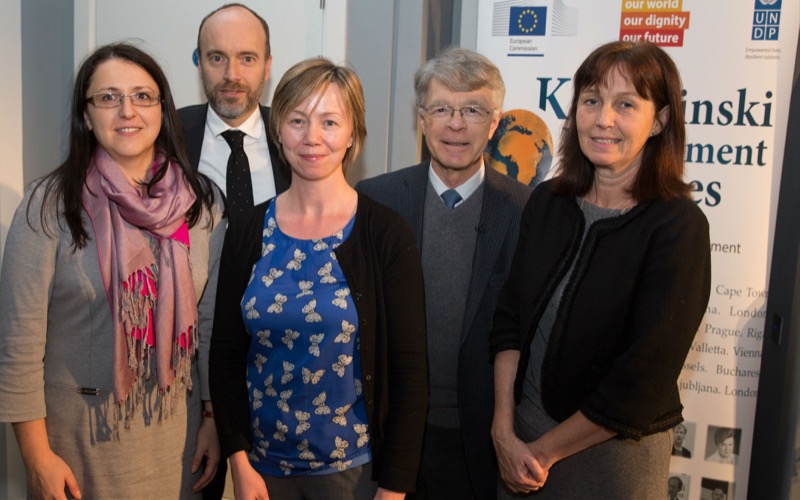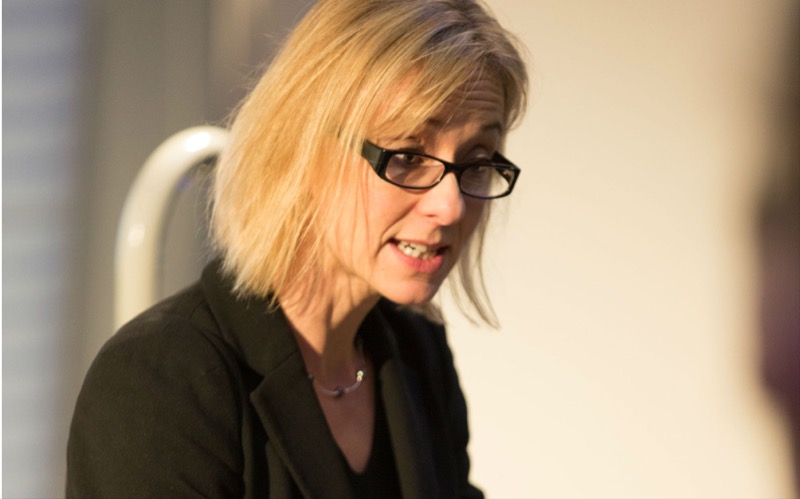Why We Turn A Blind Eye to Climate Justice and ‘Distant Strangers’
Posted on: 09 December 2014
Washing our hands of what we take to be other people’s problems is a basic survival mechanism, according to leading political philosopher, Professor Henry Shue. In the face of mounting global challenges, it’s a way of preserving our sanity. However, this capacity to turn a blind eye creates a dilemma when applied to global challenges such as climate change in developing countries argued Professor Shue at the recent Kapuscinski Development Lecture in The Science Gallery, Trinity College Dublin.
The event, which was organised by the Joint Trinity College Dublin, School of Natural Science and UCD Masters in Development Practice, the Sustainable Development Solutions Academic Centre, the European Commission and the United Nations Development Programme (UNDP) can be viewed here.

As media attention worldwide focussed on the international climate negotiations at the COP20 summit in Lima, Professsor Shue’s talk drew attention to the issue of climate justice in the Anthropocene and the need to revise our understanding of responsibility in the context of increasingly man-made environmental impacts. His lecture, entitled ‘Climate Justice – Distant Strangers and the Illusion of Separation’ attempted to counter popular explanations for the poor record on climate change in developing nations and to reinvigorate public debate about climate justice by exploring the question: ‘What am I responsible for? In particular, Professor Shue, who is also a leading climate change and human rights expert, argued that part of the problem is based on a faulty assumption that what we can turn a blind eye to challenges that seem far away:
Much commentary about our failure to appreciate the significance of climate change for developing nations stems on the assumption that the near effects of our acts are more important than the remote effects and that the effects we produce as individuals are more important than the effects we produce as members of a group.
Professor Shue’s lecture explored how these assumptions limit our possibility for action and also explained why we need to revise our conception of responsibility in the context of the Anthropocene which is the term given to describe an era in which human actions are the cause of devastating effects on the planet and by extension, according to Professor Shue, on distant strangers.

Reflecting on how we might respond to climate change, Professor Shue pointed out that we must consider both the problem and the proposed responses. He stressed that “we need to consider the danger that comes with our responses to climate change”. The lecture ended with a question and answer session which raised the following issues for tackling climate change:
- Fossil fuels need to be made extremely unattractive very soon and very fast. Current proposals include a carbon tax or cap and trade.
- We must encourage the rapid spread of alternative sources of energy and the rapid scaling up of non-carbon energy options. These must be made accessible and affordable to the poorest in the developing world.
- Need to be wary of depriving the poorest of their only energy source – fossil fuels.
- Developed/high-income countries should financially support poorest nations in the transition from carbon emitting energy sources. Part of this means limiting our own emissions.
The Kapuscinski Development Lecture series contributes to the European Year for Development 2015. The series has organised 50 lectures featuring top global thinkers discuss development issues to over 10,000 participants since 2009.
